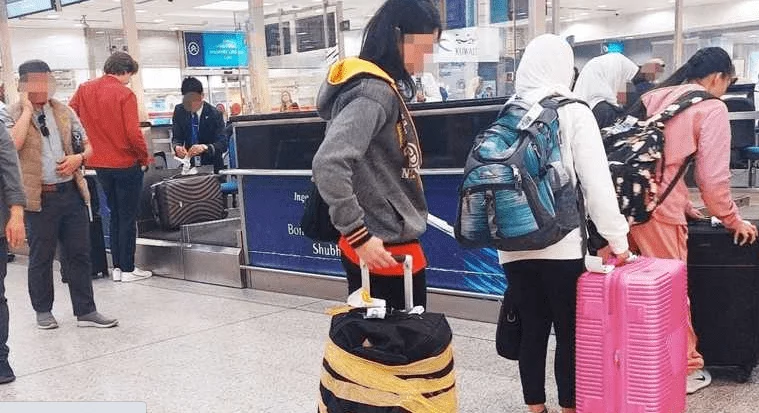
Amidst tensions between the Philippines and Kuwait concerning migrant worker rights, some 700 Filipino workers were deported from Kuwait between April and July this year.
Abused by Employers
An estimated 268,000 Filipinos live and work in Kuwait–many of whom are employed as domestic workers. Due to the country’s Kafala system, workers are legally tied to their employer who acts as their sponsor–exposing them to a variety of abuses such as passport and wage confiscation, movement restrictions, labour exploitation, and physical, sexual, and psychological violence.Those who seek to change or leave their employer are left vulnerable to arrest, detention, and deportation for illegal stay.
In 2018, a diplomatic crisis following the discovery of the body of 29-year-old Filippino Joanna Demafelis in her employer’s freezer led to the Philippines and Kuwait agreeing to a labour pact providing greater protections to Filipino workers. These included banning employers from confiscating passports, allowing workers to retain and use mobile phones, and ensuring employers pay agreed wages.
However, abuses have continued to occur–and since January this year, tensions between the two countries have heightened.
Tensions Over Worker Welfare
The most recent dispute was prompted when the body of another Filipino domestic worker–35-year-old Jullebee Ranara–was found in the Kuwaiti desert. Ranara had been brutally raped and murdered by the son of her employer, reportedly just hours after she had contacted her family to share her concerns about him.
In the immediate aftermath of her death, more than 100 Filipino domestic workers left the country and Manilla stopped the first-time deployment of domestic workers to Kuwait. Other workers who were not able to leave sought safety in a Philippine embassy shelter. While the Kuwaiti government demanded that the Philippines cease sheltering migrants like this, Filipino authorities refused. In a statement, the country’s Department of Foreign Affairs said: “Providing protection to a country’s citizens abroad is a well established duty of consular offices under international law and conventions.” In turn, in May Kuwaiti authorities indefinitely suspended all new visas for Filipino nationals.
By late May, the Philippine shelter was believed to be sheltering as many as 1000 people. However, local media soon reported that it was emptied by the Public Authority for Manpower and the Residency Affairs Investigations Department after informing the Philippine embassy–with hundreds of migrant workers transferred to detention facilities such as Talha Detention Centre. Here, media reports state that migrants were fingerprinted and procedures for their deportation completed.
Although Filipino migrants have reportedly been deported after short stays (approximately 3 days) in Talha, in the past the detention centre has been criticised for subjecting detainees to prolonged detention.
Intensified Deportations
The recent deportations of Filipinos fall against a background of Kuwaiti authorities’ intensified efforts to deport migrants. In 2022, local media reported that Kuwaiti authorities deported some 30,000 people–amongst them 6,400 Indians, 3,500 Bangladeshis, and 3,000 Egyptians. So far, 2023 has not shown any slow-down: 9,000 people were deported from the country during the first quarter of the year, averaging 100 deportations a day.
In recent years, the country has attempted a policy of “Kuwaitization.” In 2018, its Civil Service Commission issued a decree to replace expats in government jobs with Kuwaitis over the next five years, and authorities have also sought to cap migrant worker arrivals from specific countries. Egyptians have been amongst those targeted–with parliament introducing a draft law in 2020 seeking to reduce the number of Egyptian migrants in the country to 10 percent of the workforce, and new conditions introduced in 2022 such as requiring them to pay a USD 100 entry fee, increased work permit fees, and a medical examination.


